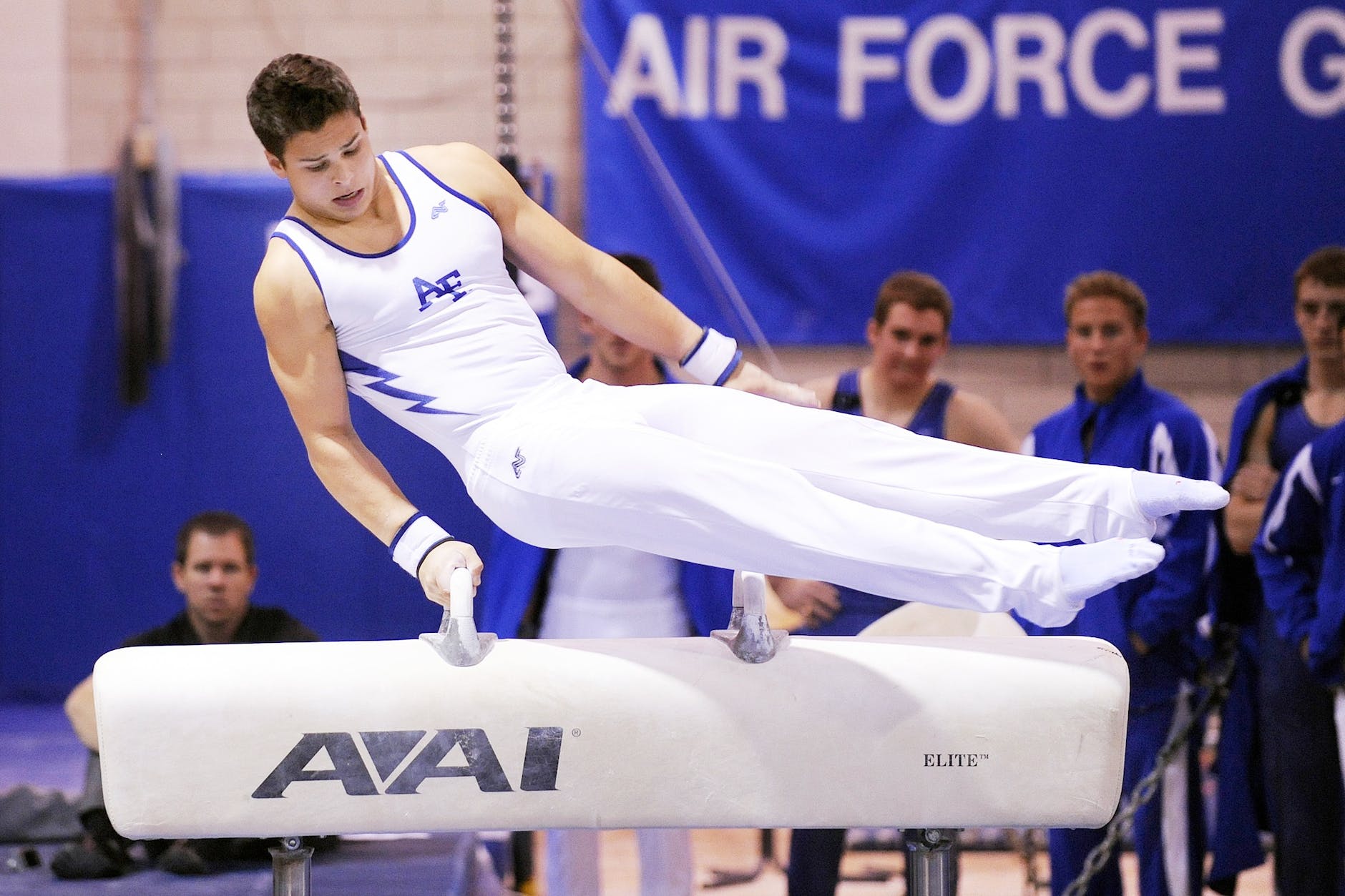This guide explores the journey to becoming a successful Sports Marketing Manager, covering role definition, job description, responsibilities, and salary ranges.
- Aspiring professionals should pursue relevant degrees, gain practical experience, and specialize in digital marketing and sponsorship management.
- Advancing in the field requires networking, continuous learning, and embracing emerging trends.
- Demonstrating leadership qualities and adaptability is crucial for a rewarding career in the ever-changing world of sports marketing.
Table of Contents:
- Introduction to Sports Marketing Management
- Educational Pathways for Aspiring Sports Marketing Managers
- Gaining Experience in Sports Marketing
- Essential Skills and Qualities for Sports Marketing Managers
- Tips for Advancing Your Sports Marketing Manager Career
- Conclusion: Sports Marketing Manager
Now, let us begin!
Introduction to Sports Marketing Management
What is a Sports Marketing Manager?
In the fast-paced and ever-evolving world of sports, the role of a Sports Marketing Manager has become increasingly vital.
A Sports Marketing Manager is a professional responsible for planning, implementing, and overseeing marketing strategies specifically tailored to the sports industry.
This dynamic position requires a unique blend of marketing expertise, a deep understanding of the sports landscape, and strong leadership skills.
Defining the Role
The Sports Marketing Manager serves as the driving force behind successful marketing campaigns for sports teams, leagues, athletes, sports events, and related products and services.
They collaborate with various stakeholders, including athletes, coaches, sponsors, and media partners, to create compelling and engaging marketing initiatives that resonate with the target audience.
Examples of Various Employers
Sports Marketing Managers find employment opportunities across a wide spectrum of organizations within the sports industry. They may work for professional sports teams, such as basketball, football, soccer, or baseball teams.
Additionally, they can find roles in sports marketing agencies, sports equipment manufacturers, athletic apparel companies, sports events management firms, and even in the marketing departments of sports-related media outlets.

To get a job in sports marketing, it is a good idea to apply in sports that you are interested in. For example, if you like snooker, you might look for a job in the UK or another country were the interest in the sport is big.
Importance in the Modern Sports Industry
In the 21st century, the sports industry has undergone a remarkable transformation, driven in large part by technological advancements and the rise of digital media.
As a result, the demand for skilled Sports Marketing Managers has surged.
These professionals play a crucial role in building strong brand identities, increasing fan engagement, and driving revenue growth for sports organizations. Their strategic marketing efforts help bridge the gap between sports entities and their global fan base, making them invaluable assets in the modern sports landscape.
The difference between sports marketing and general marketing is getting larger and larger.
Sports Marketing Manager Job Description
The job description of a Sports Marketing Manager is diverse and multifaceted. It encompasses a wide range of responsibilities, each contributing to the overall success of marketing campaigns and initiatives within the sports industry.
Summary of Key Responsibilities
- Developing Marketing Strategies: Sports Marketing Managers are responsible for devising comprehensive marketing strategies that align with the goals and values of the sports organization they represent. These strategies may include digital marketing, social media campaigns, sponsorships, promotions, and more.
- Brand Management: They oversee brand management efforts to ensure consistent messaging and brand identity across all marketing channels. This involves maintaining the brand’s reputation and ensuring that it resonates positively with fans and stakeholders.
- Fan Engagement: Engaging with fans is a crucial aspect of a Sports Marketing Manager’s role. They strive to create memorable experiences for fans through various initiatives, fostering a loyal and enthusiastic fan base.
- Sponsorship Management: Sports Marketing Managers work closely with sponsors to leverage partnerships effectively. This involves negotiating contracts, activating sponsorships, and measuring the ROI of these collaborations.
- Event Promotion: When it comes to sports events, effective promotion is essential. Sports Marketing Managers develop and implement strategies to maximize attendance and viewership for games, tournaments, and other sports-related events.
- Market Research: Staying ahead of market trends is essential in sports marketing. Sports Marketing Managers conduct market research to identify consumer preferences, monitor competitor activities, and adapt strategies accordingly.
Objectives (Fictive Examples)
To provide a clear understanding of the goals that a Sports Marketing Manager might work towards, here are a few fictive examples of their objectives:
- Increase Ticket Sales: The Sports Marketing Manager aims to boost ticket sales for upcoming sports events by 15% through targeted marketing campaigns and fan engagement initiatives.
- Expand Social Media Reach: The objective is to increase the organization’s social media following by 20% over the next six months by creating engaging content and leveraging influencer partnerships.
- Secure High-Profile Sponsorship: The Sports Marketing Manager seeks to secure a major sponsorship deal with a well-known brand, enhancing the organization’s credibility and financial stability.
Salary Range for Sports Marketing Manager
The remuneration for a Sports Marketing Manager is a significant consideration for those interested in pursuing this career path. Salaries can vary based on factors such as location, level of experience, and the organization’s size and prestige.
- The estimated total pay for a Sports Marketing Manager ranges from $76,247 to $101,716 per year (in the US).
- Average salary hovers around $90,131 per year or approximately $43.33 per hour.
- Entry-level positions before becoming a manager may start at around $52,400 per year.
Additionally, data from the U.S. Bureau of Labor Statistics shows that the median annual wage for Marketing Managers, including Sports Marketing Managers, was $135,030 in May 2021.
With a clear understanding of the role and responsibilities of a Sports Marketing Manager, as well as the potential salary prospects, aspiring professionals can better gauge their interest and suitability for this exciting and challenging career path.
In the next section, we will explore the educational qualifications and experience required to embark on a successful journey as a Sports Marketing Manager.
Educational Pathways for Aspiring Sports Marketing Managers
Becoming a successful Sports Marketing Manager requires a solid educational foundation combined with practical experience in the sports industry.
In this section, we will explore the various educational pathways that aspiring Sports Marketing Managers can take to prepare themselves for this dynamic and rewarding career.
Pursuing a Sports Marketing Degree
One of the most direct routes to becoming a Sports Marketing Manager is by obtaining a degree in sports marketing or a related field.
Many universities and colleges offer specialized programs that encompass sports marketing within broader disciplines such as management, kinesiology, or communications.
How to Select a University and College That Offers Sports Marketing Programs
When choosing a university or college for sports marketing studies, aspiring professionals should consider several key factors.
Firstly, it is essential to research the reputation and ranking of the institution’s sports management programs.
Some of the top sports management schools in the US include Ohio University, University of Massachusetts, University of Oregon, Georgetown University, University of Michigan, University of Florida, Drexel University, University of San Francisco, Columbia University, and Syracuse University.

For aspiring Sports Marketing Managers seeking global exposure, there are also top sports management schools around the world. Some notable examples include:
- Southern New Hampshire University
- EU Business School (Barcelona)
- University of Michigan
- University of Portsmouth
- Geneva Business School
- Loughborough University
- Columbia University
- University College Birmingham
Additionally, it is crucial to consider the curriculum of the program. Look for courses that cover various aspects of sports marketing, including marketing strategies, sponsorship management, fan engagement, and sports branding.
Programs that offer internships or cooperative education opportunities provide valuable hands-on experience and networking opportunities within the sports industry.
Specializations within Sports Marketing Studies
Within sports marketing programs, students may have the option to specialize in specific areas to tailor their education to their interests and career goals. Some common specializations include:
- Digital Marketing in Sports: This specialization focuses on leveraging digital platforms and technologies to engage with sports fans and build a strong online presence for sports organizations.
- Event Management and Promotion: Students interested in organizing and promoting sports events can choose this specialization to gain expertise in event planning, logistics, and marketing.
- Sponsorship and Partnership Management: This specialization delves into the intricacies of securing and managing sponsorships and partnerships with brands to support sports initiatives.
The Importance of Combining Theory and Practical Experience
While a formal education provides the theoretical framework for sports marketing, practical experience is equally vital.
Aspiring Sports Marketing Managers should actively seek internships, volunteer opportunities, or part-time jobs within the sports industry to gain hands-on experience and make valuable connections.
Interning with sports teams, sports marketing agencies, or sports events management companies exposes individuals to real-world challenges and opportunities unique to the sports industry.
These experiences allow them to apply their theoretical knowledge and develop essential skills, such as negotiation, relationship management, and marketing analytics.
Combining academic knowledge with practical experience not only enhances an individual’s understanding of the sports marketing landscape but also makes them more attractive to potential employers upon graduation.
Alternative Educational Routes
While a sports marketing degree offers a targeted path, there are alternative educational routes for those who may already have a background in related fields or are looking for more flexible options.
Relevant Degrees in Marketing, Business, or Communication
Aspiring Sports Marketing Managers can also pursue degrees in marketing, business, or communication. These programs provide a broader understanding of essential marketing principles, consumer behavior, and communication strategies, which are all valuable in the sports marketing field.
Individuals with degrees in these disciplines can then gain specific sports marketing knowledge through specialized courses, certifications, or on-the-job training.
Online Certifications and Professional Development Courses
Online certifications and professional development courses offer a convenient way for professionals already working in the sports industry to upskill and specialize in sports marketing.
These courses may cover specific aspects of sports marketing, such as social media marketing for sports or sports sponsorship strategies.
Study Marketing On Your Own: Books, YouTube, and Podcasts
Self-directed learning is a valuable option for individuals who prefer a more flexible and personalized approach to education. There are numerous books, YouTube channels, and podcasts that focus on sports marketing and offer valuable insights from industry experts and successful professionals.
Incorporating self-study into a structured educational journey can help aspiring Sports Marketing Managers stay updated on the latest industry trends and best practices.
In the next section, we will explore the essential experience requirements and career progression for individuals aiming to excel in their roles as Sports Marketing Managers.
Gaining Experience in Sports Marketing
Internships and Entry-Level Positions
For aspiring Sports Marketing Managers, gaining practical experience is a crucial step in their journey towards a successful career in the sports industry.
Internships and entry-level positions offer invaluable opportunities to apply theoretical knowledge, develop essential skills, and make meaningful connections within the field of sports marketing.
Internship in General: 3 Things to Consider
When considering sports marketing internships, there are several important factors to keep in mind to make the most of this valuable learning experience:
- Relevance to Your Interests: Look for internships with sports teams, sports marketing agencies, or sports events management companies that align with your interests and career aspirations. Working with organizations and projects that resonate with you will enhance your enthusiasm and dedication.
- Learning Opportunities: Prioritize internships that offer structured learning opportunities and mentorship. A well-designed internship program should provide exposure to various aspects of sports marketing, allowing you to gain a comprehensive understanding of the industry.
- Networking Possibilities: Building a professional network is crucial in any industry, and sports marketing is no exception. Seek internships that provide opportunities to connect with industry professionals, as these connections can be beneficial in your future career endeavors.
Finding and Landing Sports Marketing Internships
Securing a sports marketing internship can be competitive, but there are strategies to increase your chances of success:
- Research sports organizations: Look into local sports teams, sports marketing agencies, and sports events management companies to identify potential internship opportunities.
- Network: Attend industry events, join sports marketing-related online forums, and reach out to professionals in the field to inquire about internship possibilities.
- Tailor your application: Customize your resume and cover letter for each internship application, highlighting relevant skills and experiences.
- Showcase your passion: During interviews, demonstrate your genuine enthusiasm for sports marketing and the organization you are applying to.
Entry-Level Roles and Their Significance
Entry-level positions in sports marketing serve as stepping stones to a rewarding career. These roles provide hands-on experience, allowing individuals to learn and grow within the sports industry.
Some common entry-level roles in sports marketing include:
- Marketing Assistant: Assisting in the implementation of marketing campaigns, conducting market research, and supporting marketing initiatives.
- Social Media Coordinator: Managing social media platforms, creating engaging content, and interacting with fans to build a strong online presence.
- Event Marketing Coordinator: Contributing to event planning, promotion, and execution to maximize attendance and engagement.
- Sponsorship Coordinator: Assisting in the management of sponsorships and partnerships, ensuring contractual obligations are met, and exploring new sponsorship opportunities.
The Importance of Finding a Role Model Who Is Already In The Field
Having a role model in the sports marketing field can be highly beneficial for aspiring Sports Marketing Managers. A role model offers insights into the industry, shares experiences, and provides guidance on navigating challenges and seizing opportunities.
Benefits of having a role model:
- Inspiration and Motivation: A role model’s success story can inspire and motivate you to work hard and pursue your goals with determination.
- Practical Advice: Learning from someone who has already walked the path can provide practical advice on career advancement and avoiding potential pitfalls.
- Networking Opportunities: Your role model’s network can open doors to new connections and opportunities in the sports industry.
- Mentorship Possibilities: In some cases, a role model may be open to mentoring, providing personalized guidance and support in your career journey.
Progressing in the Sports Marketing Field
Mid-Level and Senior Marketing Positions
With experience and demonstrated skills, Sports Marketing Managers can progress to mid-level and senior positions. These roles come with increased responsibilities and leadership opportunities. Common mid-level and senior positions in sports marketing include:
- Marketing Manager: Overseeing marketing campaigns, managing marketing teams, and developing long-term marketing strategies for the organization.
- Brand Manager: Taking charge of brand development and management, ensuring consistent brand messaging, and expanding brand reach.
- Sponsorship Manager: Managing major sponsorship deals, negotiating contracts, and fostering strong relationships with sponsors.
Skill Development and Continuous Learning
In the dynamic world of sports marketing, continuous learning and skill development are essential. Some key skills to focus on include:
- Digital Marketing: Mastering various digital platforms and marketing techniques to engage with fans and increase brand visibility.
- Data Analytics: Utilizing data to analyze marketing performance and make data-driven decisions.
- Negotiation and Communication: Enhancing negotiation skills to secure profitable partnerships and effectively communicate marketing strategies to stakeholders.
Working With Your Favorite Sport
One of the most rewarding aspects of a career in sports marketing is the opportunity to work with your favorite sport. Whether it’s basketball, soccer, football, or any other sport, aligning your passion with your profession can bring unparalleled satisfaction to your career.

In the next section, we will delve into the specific educational qualifications and experience requirements for mid-level and senior Sports Marketing Managers, as well as the potential for career advancement within the sports industry.
Essential Skills and Qualities for Sports Marketing Managers
Becoming a successful Sports Marketing Manager requires a diverse skill set, a deep understanding of the sports industry, and effective leadership qualities.
In this section, we will explore the essential skills and qualities that aspiring Sports Marketing Managers should possess to excel in their roles.
Core Competencies for Success
The Importance of Understanding Different Target Groups
Sports Marketing Managers must be adept at identifying and understanding various target groups within the sports fan base. Each segment of the audience has distinct preferences, interests, and communication preferences.
By tailoring marketing strategies to resonate with different target groups, Sports Marketing Managers can effectively engage fans and drive results.
Marketing Strategy and Campaign Management for Sports Marketers
Sports Marketing Managers are responsible for developing comprehensive marketing strategies and executing successful campaigns. This involves:
- Conducting market research to identify consumer trends, competitor activities, and potential opportunities.
- Crafting creative and compelling marketing campaigns that align with the organization’s objectives and resonate with the target audience.
- Utilizing various marketing channels, including digital platforms, social media, email marketing, and traditional advertising, to reach fans and maximize engagement.
Special Knowledge for Sports Marketers
How To Learn About Sponsorships
Sponsorships play a significant role in sports marketing, and Sports Marketing Managers must have a solid understanding of how to secure and manage sponsorships effectively. To gain expertise in this area:
- Study successful sponsorship case studies from sports organizations and brands.
- Attend sports industry conferences and workshops that focus on sponsorship strategies.
- Network with professionals in sports sponsorship to learn from their experiences.
How To Be a Merchandising Professional
Sports merchandise is a critical revenue stream for sports organizations, making merchandising knowledge essential for Sports Marketing Managers. To become proficient in merchandising:
- Familiarize yourself with the latest sports merchandising trends and consumer preferences.
- Learn about product licensing and the process of creating branded merchandise.
- Collaborate with merchandising teams or specialists to gain practical experience.

How To Get Ticket Sales Experience
Ticket sales are a vital component of sports marketing, especially for sports events. Aspiring Sports Marketing Managers can gain ticket sales experience by:
- Volunteering or interning with sports organizations that sell tickets for events.
- Participating in ticket sales training programs or workshops.
- Shadowing experienced ticket sales professionals to learn about effective sales techniques.
Understanding Future Employers
What Is The Purpose of Sports Organizations
Understanding the objectives and mission of sports organizations is essential for Sports Marketing Managers to align their marketing efforts with the organization’s goals. Sports organizations aim to:
- Enhance fan engagement and loyalty.
- Increase ticket sales and event attendance.
- Attract and retain sponsorships to support financial stability.
- Build a strong brand identity and positive reputation.
What Type of Clubs Can Hire a Sports Marketer
Sports Marketing Managers can find employment opportunities in various types of sports clubs and organizations, including:
- Professional sports teams: Football, basketball, soccer, baseball, hockey, etc.
- College and university sports programs: NCAA teams and athletic departments.
- Sports events management companies: Organizations responsible for planning and organizing sports events.
- Sports marketing agencies: Firms that specialize in providing marketing services to sports clients.
How Is The Industry of Participation Event Working
Participation events are sports competitions or activities that allow individuals of all skill levels to engage and participate. Sports Marketing Managers in this sector focus on:
- Creating marketing campaigns to attract participants to the events.
- Collaborating with sponsors to secure funding and support for participation events.
- Enhancing the overall experience for participants and spectators.
Soft Skills for Effective Leadership
Communication and Negotiation Skills
Sports Marketing Managers must possess exceptional communication skills to convey marketing strategies and collaborate with various stakeholders effectively. They also need strong negotiation skills to secure sponsorships and partnerships.
Team Management and Collaboration
Leading marketing teams and collaborating with professionals from diverse backgrounds is essential for Sports Marketing Managers. Team management involves:
- Assigning tasks and responsibilities to team members.
- Providing guidance and feedback to ensure the team’s success.
- Fostering a positive and collaborative work environment.
Don’t Forget To Be Kind (And Everything Will Be OK)
While technical skills are crucial for a Sports Marketing Manager’s success, kindness and empathy are equally important. Building positive relationships with colleagues, clients, and fans can create a supportive and harmonious work environment, fostering loyalty and dedication within the team.
In conclusion, becoming a Sports Marketing Manager requires a combination of specialized knowledge, marketing expertise, strong leadership, and a genuine passion for sports. By continuously developing these skills and qualities, aspiring professionals can thrive in this dynamic and rewarding field.
Remember, kindness and empathy go a long way in building meaningful connections and fostering success in the sports marketing industry.
Tips for Advancing Your Sports Marketing Manager Career
Becoming a Sports Marketing Manager is just the beginning of an exciting and fulfilling journey within the sports industry. To progress and reach new heights in your career, it’s essential to focus on networking, continuous professional growth, and embracing industry trends.
In this section, we will explore valuable tips to advance your career as a Sports Marketing Manager.
Networking and Building Professional Connections
Industry Associations and Memberships
Joining industry-specific associations and memberships can significantly enhance your networking opportunities and keep you updated on the latest developments in sports marketing. Some relevant organizations include:
- American Marketing Association (AMA): The AMA offers valuable resources and networking events for marketing professionals across industries, including sports marketing.
- National Sports Marketing Network (NSMN): The NSMN provides a platform for sports marketing professionals to connect, share insights, and access exclusive industry events.
Attend Relevant Events and Conferences
Attending sports industry events and conferences offers valuable opportunities to meet like-minded professionals, potential employers, and industry experts.

Look for events that focus on sports marketing, digital marketing, and emerging trends in the sports industry.
- Sports Business Journal’s Sports Marketing Symposium: This annual event gathers top sports marketing executives to discuss the latest trends and best practices.
- Hashtag Sports: A leading conference that brings together sports industry innovators, marketers, and creators to explore the future of sports.
Utilizing Social Media for Networking
Social media platforms, especially LinkedIn and Twitter, are powerful tools for networking within the sports industry.
Engage with industry leaders, join sports marketing-related groups, and participate in relevant discussions to expand your network.
Continuous Professional Growth and Adaptation
Staying Updated with Sports Industry Developments
The sports industry is constantly evolving, and staying informed about new trends and developments is essential for a successful Sports Marketing Manager. Follow reputable sports news sources, industry publications, and blogs to stay updated.
Embracing Digital Marketing and Technology Trends
Digital marketing and technology play a significant role in modern sports marketing. Embrace emerging trends such as:
- Social Media Innovation: Stay updated with new features and tools on social media platforms to enhance fan engagement and reach.
- Virtual and Augmented Reality: Explore how VR and AR can elevate the fan experience and create innovative marketing campaigns.
- Data Analytics: Utilize data analytics to measure the success of marketing strategies and make data-driven decisions.
Create Own Content (Or Be a Guest Columnist)
Demonstrate your expertise and thought leadership in the sports marketing field by creating your own content. Start a blog, publish articles on industry platforms, or be a guest columnist for sports publications.
This will not only showcase your knowledge but also expand your reach within the industry.
Reach out to me at SportsBizTrends.com if you are interested in a guest post: About Me & Contact
Seek Career Advancement Opportunities
Pursue Leadership Roles
Displaying strong leadership qualities and a track record of successful marketing campaigns can open doors to leadership positions within sports organizations.
Seek opportunities for promotions to marketing director or chief marketing officer roles.
Explore Opportunities in Global Markets
The sports industry has a global reach, and pursuing career opportunities in international markets can offer unique experiences and challenges.
Working with sports organizations in different countries can broaden your perspective and skillset.
Maintain a Positive and Resilient Attitude
Advancing your career as a Sports Marketing Manager requires determination and resilience. Stay positive even in the face of challenges, and be open to learning from failures.
A resilient attitude will help you navigate through setbacks and emerge stronger.
Conclusion: Sports Marketing Manager
Embrace the Journey
Congratulations! You’ve now journeyed through a comprehensive guide on becoming a successful Sports Marketing Manager.
From understanding the role and responsibilities to gaining the right education and experience, you have been equipped with valuable insights to embark on a fulfilling career within the sports industry.
As we conclude this article, let’s revisit the key points that highlight why becoming a Sports Marketing Manager is the right choice and how you can take charge of your career to adapt to the ever-changing future of sports marketing management.
Why Becoming a Successful Sports Marketing Manager Is the Right Choice
Sports Marketing Managers play a pivotal role in shaping the sports industry’s landscape. They are the masterminds behind engaging marketing campaigns, building brand identities, and fostering fan loyalty.
Choosing a career as a Sports Marketing Manager offers a range of benefits, including:
- Passion and Purpose: Working in the sports industry allows you to combine your passion for sports with your professional skills, creating a career that brings purpose and fulfillment.
- Dynamic and Exciting Environment: The sports industry is fast-paced, ever-changing, and full of excitement. As a Sports Marketing Manager, you will thrive in this dynamic environment.
- Impactful Fan Engagement: Your marketing efforts will directly impact fans, creating memorable experiences and strengthening their connection to the sports organizations you represent.
- Global Reach: Sports have a universal appeal, allowing you to work with diverse audiences and organizations on a global scale.
Pursuing Education and Experience Hand in Hand
Throughout this guide, we emphasized the importance of striking a balance between education and practical experience.
By pursuing a relevant degree and gaining hands-on experience through internships and entry-level roles, you can lay a strong foundation for your career as a Sports Marketing Manager.
Remember:
- Choose the Right Educational Pathway: Explore sports marketing programs or related degrees that offer specializations in the sports industry. Look for reputable universities and colleges that can provide a well-rounded education.
- Seize Internship Opportunities: Internships provide invaluable real-world experience and networking opportunities. Be proactive in securing internships with sports organizations to kickstart your career.
- Continuous Learning: In the dynamic world of sports marketing, staying updated with industry trends, digital marketing techniques, and emerging technologies is essential. Embrace a growth mindset and commit to continuous learning throughout your career.
Take Charge of Your Career
As a Sports Marketing Manager, you are not only a strategic marketer but also a leader within the sports industry.
Here are some of my personal tips to take charge of your career and advance to new heights:
- Network and Build Connections: Join industry associations, attend conferences, and utilize social media to expand your professional network and open doors to new opportunities.
- Demonstrate Leadership Qualities: Showcase your leadership skills and ability to drive successful marketing campaigns. Pursue leadership roles within sports organizations to make a significant impact.
- Embrace Change and Adaptation: The sports industry is ever-changing, with technological advancements and new trends shaping the way fans engage with sports. Embrace change and be open to adapting your strategies to stay ahead in the field.
The Future of Sports Marketing Management Is Always Changing
As we conclude, it’s essential to recognize that the future of sports marketing management is a constantly evolving landscape.
With advancements in technology, changing consumer behavior, and global events shaping the industry, Sports Marketing Managers must be agile and adaptive.
To thrive in this dynamic environment, stay curious, remain resilient, and continue seeking new opportunities for growth and development.

As a Sports Marketing Manager, you have the power to shape the narrative of sports marketing and leave a lasting impact on fans, athletes, and sports organizations alike.
Embrace the journey ahead with enthusiasm and dedication, and remember that being a Sports Marketing Manager is not just a career choice; it’s a passion-driven and rewarding path to making a significant difference in the world of sports marketing.
So, are you ready to take on the challenge?
Just do it.

Hello! I’m Magnus Berglund, a seasoned trendspotter and proud founder of SportsBizTrends.com.
With over a decade of experience as an independent advisor and consultant, I have specialized in business development and creative marketing within the sports industry. This has, among other things, resulted in a book about sports sponsorship (only available in Swedish for the moment).
If you find my writing interesting, please share it with your colleagues and friends. It would be greatly appreciated!
And yes, I do freelance consulting and provide lectures at industry events, business networks, board meetings, and similar occasions. However, since I also work as a Marketing Manager for an industrial company, I choose the occasions wisely.
That said, don’t hesitate to contact me with your inquiry.
With experience from various assignments in strategy, tactical activations, and valuation of sponsorship (from the grassroots level to the English Premier League), I am happy to share my insights and ideas in this fast-paced industry.
For more information about me and my work, including my contact details, please visit the About page, or connect with me via LinkedIn.








